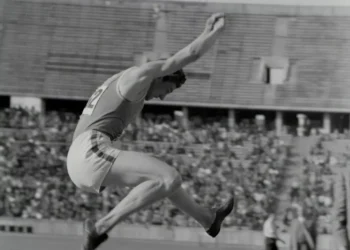Palestinian human rights lawyer Diana Buttu has been a leading voice in the fight for justice and freedom for her people. In a recent interview with The Intercept, she shed light on the ongoing nakba (catastrophe) faced by Palestinians and the need for decolonization in order to achieve their basic human rights.
The nakba, which means “catastrophe” in Arabic, refers to the mass displacement and dispossession of Palestinians during the establishment of the state of Israel in 1948. Buttu explained that the nakba is not a one-time event, but an ongoing process of erasure and oppression faced by Palestinians.
“We are still living in a state of ongoing nakba,” she stated. “This is not something that ended in 1948. For Palestinians, it’s an ongoing process of dispossession, of having our rights denied, of being constantly under attack.”
Buttu, who was born and raised in Canada to Palestinian parents, has dedicated her career to advocating for the rights of Palestinians. She served as a legal advisor to the Palestinian negotiating team during peace talks with Israel and has worked with several human rights organizations.
In the interview, Buttu highlighted the stark reality faced by Palestinians in the Gaza Strip and the West Bank, where they are subjected to constant violence and oppression by the Israeli government. She stressed that the root cause of this injustice is the ongoing occupation of Palestinian land by Israel.
“We are living under an apartheid regime,” Buttu declared. “We are living under a system that is aimed at keeping us separate, that is aimed at keeping us unequal, that is aimed at pushing us out of our land.”
The Gaza Strip, home to nearly two million Palestinians, has been under a blockade by Israel since 2007. This has severely restricted the movement of people and goods, resulting in an economic crisis and humanitarian disaster. “It’s been referred to as the world’s largest open-air prison,” Buttu stated, highlighting the dire conditions faced by the people living in Gaza.
Meanwhile, in the West Bank, Israeli settlements and checkpoints have fragmented Palestinian communities and destroyed their livelihoods. “Palestinians live in fragmented territories with very little movement in between,” Buttu explained. “They’re constantly subjected to checkpoints, to being stopped, to being harassed, to being shot at.”
Buttu also stressed the importance of understanding the Palestinian struggle as a fight for decolonization. “We have to start thinking in terms of decolonization,” she urged. “What we’re seeing in Palestine is a settler-colonial project that has been ongoing for over 100 years.”
She emphasized that true freedom and justice for Palestinians can only be achieved through decolonization and the recognition of their basic human rights. “We have the right to live on our land, we have the right to move freely, we have the right to equal treatment, and we have the right to decide our own futures,” Buttu stated.
Despite the challenges and obstacles faced by Palestinians, Buttu remains hopeful and resilient in her fight for justice. She believes that the key to achieving decolonization is through international solidarity and support. “We need everyone to stand up for justice, to stand up for equality,” she emphasized.
In the face of ongoing oppression, Palestinians continue to resist and fight for their rights. Buttu’s message to her fellow Palestinians is to never give up on their struggle. “It’s very clear that Israel has no intention of giving us our rights,” she stated. “We have to continue pushing and never give up.”
The interview with Diana Buttu sheds light on the ongoing struggle faced by Palestinians and the urgent need for decolonization in order to achieve justice and freedom. It serves as a reminder to the international community to stand in solidarity with the Palestinian people and support their fight for basic human rights. As Buttu stated, “We have to start thinking in terms of decolonization if we truly want to see a just and peaceful future in Palestine.”






